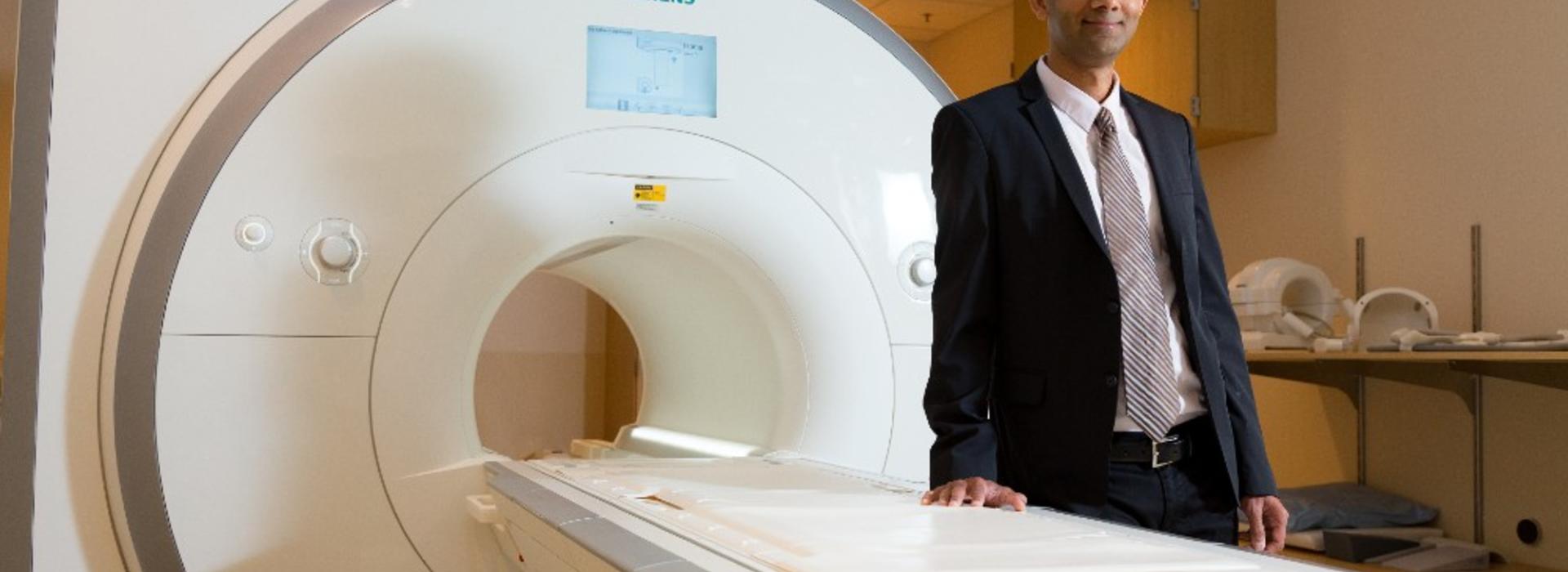
Research Brief: Identifying patients with sarcoidosis at risk for bad cardiac outcomes
MINNEAPOLIS/ST. PAUL (10/04/2022) — Researchers from the University of Minnesota Medical School found that patients with certain features on magnetic resonance imaging (MRI) of the heart are at much higher risk for cardiac sarcoidosis-related adverse outcomes. These patients may benefit from an implantable cardioverter defibrillator. Meanwhile, other features identified patients at very low risk who might not benefit from the device. These findings were published recently in JAMA Cardiology.
Cardiac sarcoidosis is a rare inflammatory heart disease that can result in rhythm disturbances and heart failure. Sarcoidosis is estimated to affect approximately 200,000 Americans.
“Late gadolinium enhancement on cardiovascular magnetic resonance imaging is often used to diagnose cardiac sarcoidosis. Our research shows that not all patients with late gadolinium enhancement on cardiac MRI have the same risk of adverse outcomes, particularly ventricular arrhythmias,” said Chetan Shenoy, MBBS, MS, an associate professor of medicine at the University of Minnesota Medical School and the lead author of the study. “We believe our findings will help optimize the clinical care of patients with suspected cardiac sarcoidosis, and consequently, lead to better outcomes.”
In this largest study yet of suspected cardiac sarcoidosis investigated by cardiac MRI, the researchers studied 504 patients. The MRI features were based on the research team’s previously published study that described features of cardiac damage in the hearts of patients with cardiac sarcoidosis who had suddenly died or needed heart transplantation.
Researchers note that these findings should be replicated in other, more diverse, cohorts. Whether clinical management guided by these cardiac MRI features improves outcomes in patients with suspected cardiac sarcoidosis should be prospectively tested in a randomized trial.
The work was supported by National Institutes of Health grant K23HL132011, National Institutes of Health grant R03HL157011, a University of Minnesota Clinical and Translational Science Institute KL2 Scholars Career Development Program Award (National Institutes of Health grant KL2TR000113-05), a University of Minnesota Clinical and Translational Science Institute K-R01 Transition to Independence Grant (supported by the National Institutes of Health grant UL1TR002494) and a Lillehei Heart Institute Red Heart Soiree Seed Grant.
###
About the University of Minnesota Medical School
The University of Minnesota Medical School is at the forefront of learning and discovery, transforming medical care and educating the next generation of physicians. Our graduates and faculty produce high-impact biomedical research and advance the practice of medicine. We acknowledge that the U of M Medical School, both the Twin Cities campus and Duluth campus, is located on traditional, ancestral and contemporary lands of the Dakota and the Ojibwe, and scores of other Indigenous people, and we affirm our commitment to tribal communities and their sovereignty as we seek to improve and strengthen our relations with tribal nations. For more information about the U of M Medical School, please visit med.umn.edu.